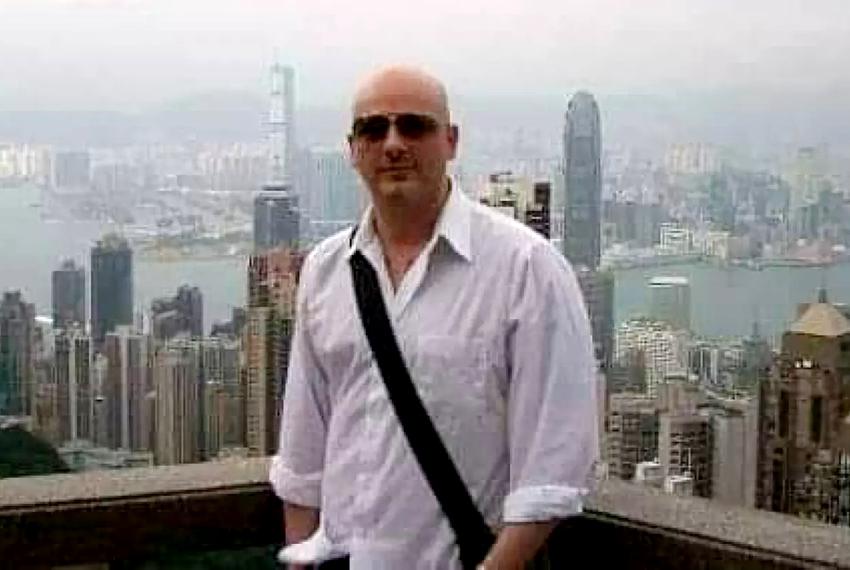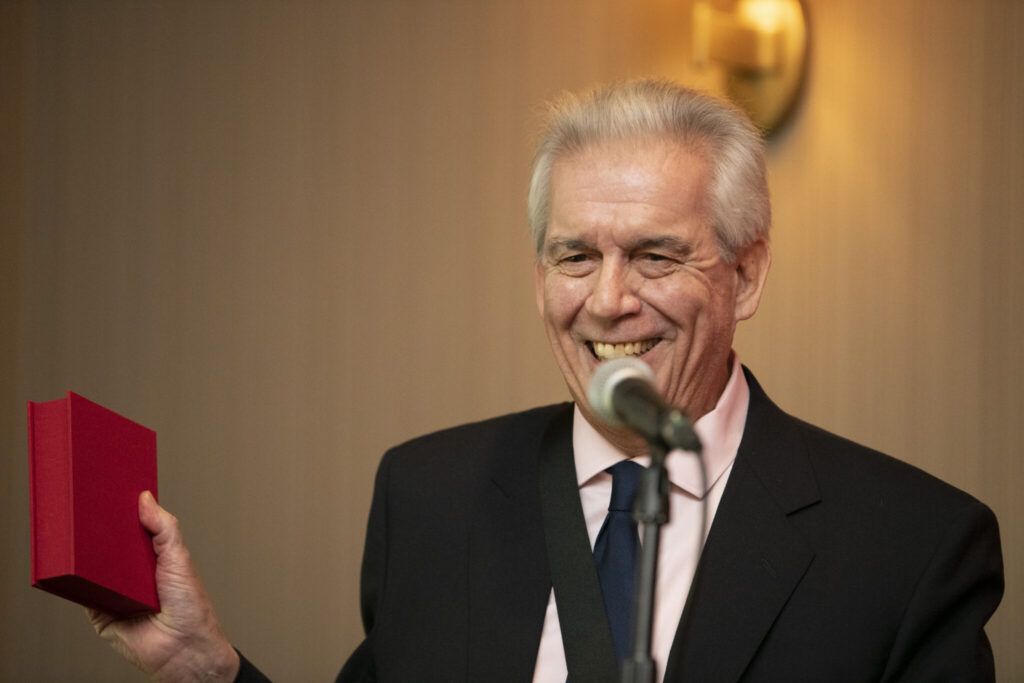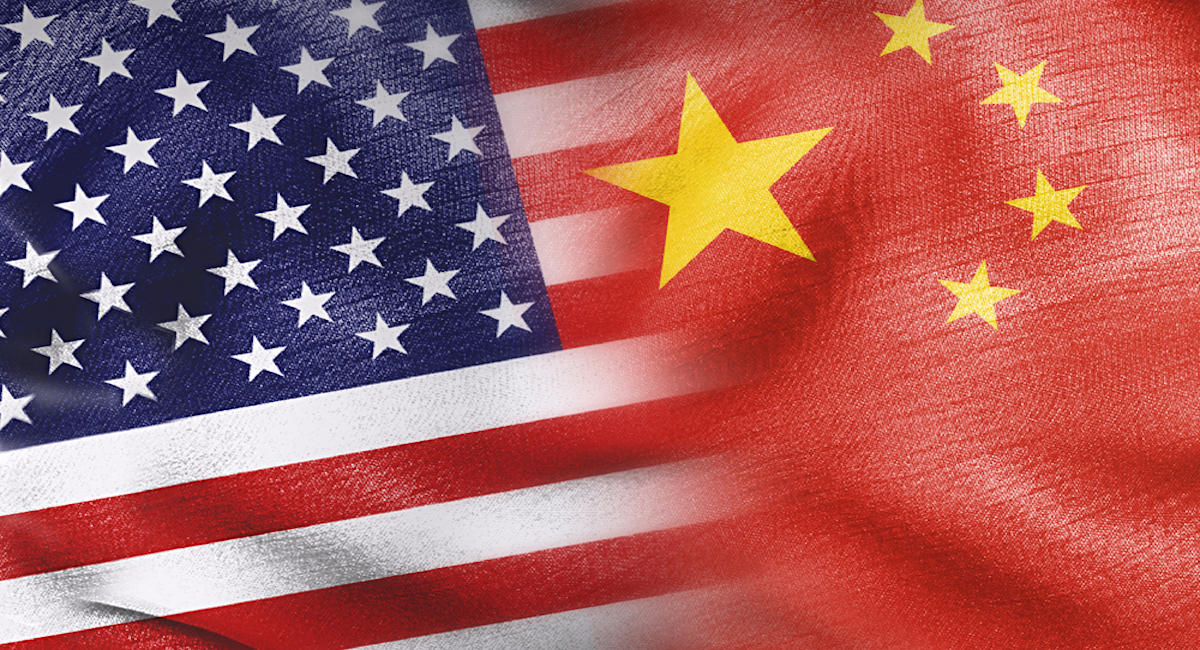Editor’s Note: John Kamm spent more than 20 years living in Hong Kong, where in the 1990s he served as head of the US Chamber of Commerce. Since leaving that post he has dedicated his life and career to the promotion of human rights in China. With ties between Washington and Beijing at a historic low, Kamm says trust between the two superpowers is non-existent but that finding areas of common interest can begin to mend the rift. Kamm, the only businessperson to receive a MacArthur Foundation “genius” award, is the founder of The Dui Hua Foundation, which promotes clemency for political and religious prisoners in China.
I wanted to start big picture and ask you, broadly, what is the state of US–China relations today?
One of the problems right now, and this is pretty much unprecedented, is China really has no friends in Washington. None! Back when I was working on trade and human rights in the early ‘90s, yes, China was unpopular, especially after Tiananmen Square. But you still had some Congress members… who at least had some friendly feelings with China. They were far outnumbered, but they existed, and some of them were in very senior positions on committees. That is no longer the case. I am not aware of a single member of Congress who has had anything positive to say about China in a long time. So, I think, the biggest impediment is lack of trust.
That has bred, in Washington and I think in Beijing, deep unpopularity of the other country. In the US, China’s “approval” among the American population is abysmally low. I think it’s under 20%, and the “unfavorable” category, according to the polls, is like 70%. And that is reflected in the views in Congress.
Washington just banned the sale of semiconductors to China, part of Biden’s “competition, not conflict,” approach with Beijing. What do you make of that?
Banning China’s access to things like microchips and semiconductor technology, the Chinese see this as an effort to contain China. This is not competition. This is containment. And containment leads to conflict. It always has.
I found it striking that on the day news of the US shooting down the Chinese balloon broke, San Francisco had banners around the city celebrating Chinese New Year. Can we find common ground between the two countries?

We need to work harder to find areas of common ground and common interest, and there is good reason why the two countries can focus on some things in common. My favorite example is juvenile justice. Americans don’t often think about this in these terms. But in fact, rights of the child, rights of children are human rights. You have a UN convention on the rights of the child, which the US has not signed by the way. China has. Since 2008, my organization, the Dui Hua Foundation, has had a program on juvenile justice every couple of years with the Chinese Supreme Court. We’ll have another one in April. This will be our ninth program with the Chinese Supreme Court. Now, think about that. We are a recognized American human rights group. We are partnering with China’s highest court on an important area of human rights.
Those are the kinds of things we need to locate. And there are others. For instance, the rights of the disabled. The US has had exchanges with China in this area. Also, the rights of women in prison, which we’ve also done work on. So, there are areas where we can find common ground. But we need to look for them, and not dismiss them out of hand, which is too often the case I’m afraid with Washington.
A lot of your work today focuses on advocacy for political prisoners in China. Who are they? And why haven’t their cases garnered more attention here?
There are more than 200 American citizens, some of whom have been detained in China for many, many years. The most obvious example is the Mark Swidan case, a Texas businessman who has been in a detention center without final adjudication for more than 10 years. He had an appeal in April of 2020. No result. No judgement. He appealed his sentence. No result. None at all.
In my opinion, the one thing China could have done during the now-cancelled visit by Secretary of State Antony Blinken was to release American citizen prisoners. There was some hope because that is pretty much the only area where Beijing can move. They are not going to budge on the issue of Taiwan, or on the East China Sea. But they can show some clemency to American prisoners. I was hoping for that. I still have some hope. But to me, that was the greatest loss of the cancelation of the Blinken visit.

There were presumably a lot of arrests following the recent protests over Covid restrictions in China? What are you seeing there?
We maintain a very large database. We have about 47,000 records, of which 7,500 are active. And from that we craft lists and raise cases. Right now, we have a whole new category of prisoners in our database and that is the anti-Covid protestors who have been rounded up. We have about 30 names now. These are the names we know of. There are probably more. This week I’ll be speaking to a relative of one of them. She was a professor at a university in northeastern China. She supported the protests, and she was put into a psychiatric detention facility. We’re quite concerned.
You served as head of the US Chamber of Commerce in Hong Kong during a pivotal moment in US-China relations. What is the role of American business in that respect?
I was president of the American Chamber in 1990. That was the first year of the Most Favored Nation debate. I testified three times before Congress in 1990, twice in ‘91 and again in ‘92. My first hearing in May of 1990, my dear friend Nancy Pelosi showed up and we had quite an exchange. I pushed back, which some members of Congress advised me not to do. But I did, I challenged what was being said about China, about my own relationship with China and about the business communities’ relationship. And I’ll tell you that more than anything else is the reason why Chinese officials have worked with me on human rights for more than 30 years. Because they remember that.
Since I left the Chamber, I’m afraid American businesses have been bending over backwards not to criticize China’s human rights. That may be changing, because the intensity of feeling against China in Washington is so strong that they almost have to speak out to some extent on human rights. But by and large… the American business community has really rolled over when it comes to human rights in China. They are not viewed in Congress as a force for respect for human rights, individual freedoms, liberty, and that is too bad.

If you look at the Universal Declaration on Human Rights, intellectual property is a human right. It’s right in there. And, of course, American businesspeople want protection of intellectual property, but what they don’t seem to get is that it is a human right that is recognized in international human rights instruments. And human rights are indivisible. You can’t say you’re all about protecting intellectual property rights on the one hand, but that you don’t want to talk about freedom of speech or freedom of religion on the other. It doesn’t work that way. Human rights are indivisible. American business has to really get on board to do more and speak out. They do it in this country. But they don’t do it with China.
The signs seem ominous when it comes to China’s future course. Do you see any room for optimism?
I’m actually not that pessimistic. I think change will come in China primarily because of the Chinese people themselves. We witnessed that with the anti-Covid protests. Why did Xi do a 180° shift from lockdowns to no lockdowns. Because of popular protest. But the Chinese can’t change China if they are in prison. So, the most important thing we can do to change China—if that’s the way to put it—is to help people who are in prison, who are seeking change but are in prison. You can’t change China if you’re locked up. So, it is a high priority for us to win clemency for Chinese prisoners.
The other thing we work on is to encourage transparency. And that is a big issue now. The Chinese government has been greatly reducing judicial transparency. In June of 2021, the government purged all the sensitive information on their court judgement websites. We used to be able to find judgements on “endangering state security” and so-called “cult crimes.” We used to be able to find those on official websites, which is vitally important. That is no longer possible. Even death penalty cases have been purged. These are two things we need to promote. We need to promote clemency and transparency. Those are the goals.




